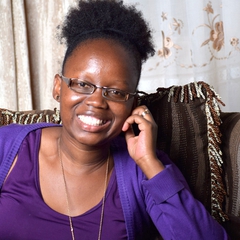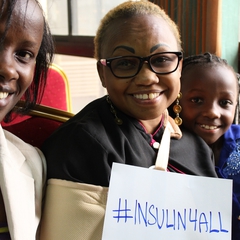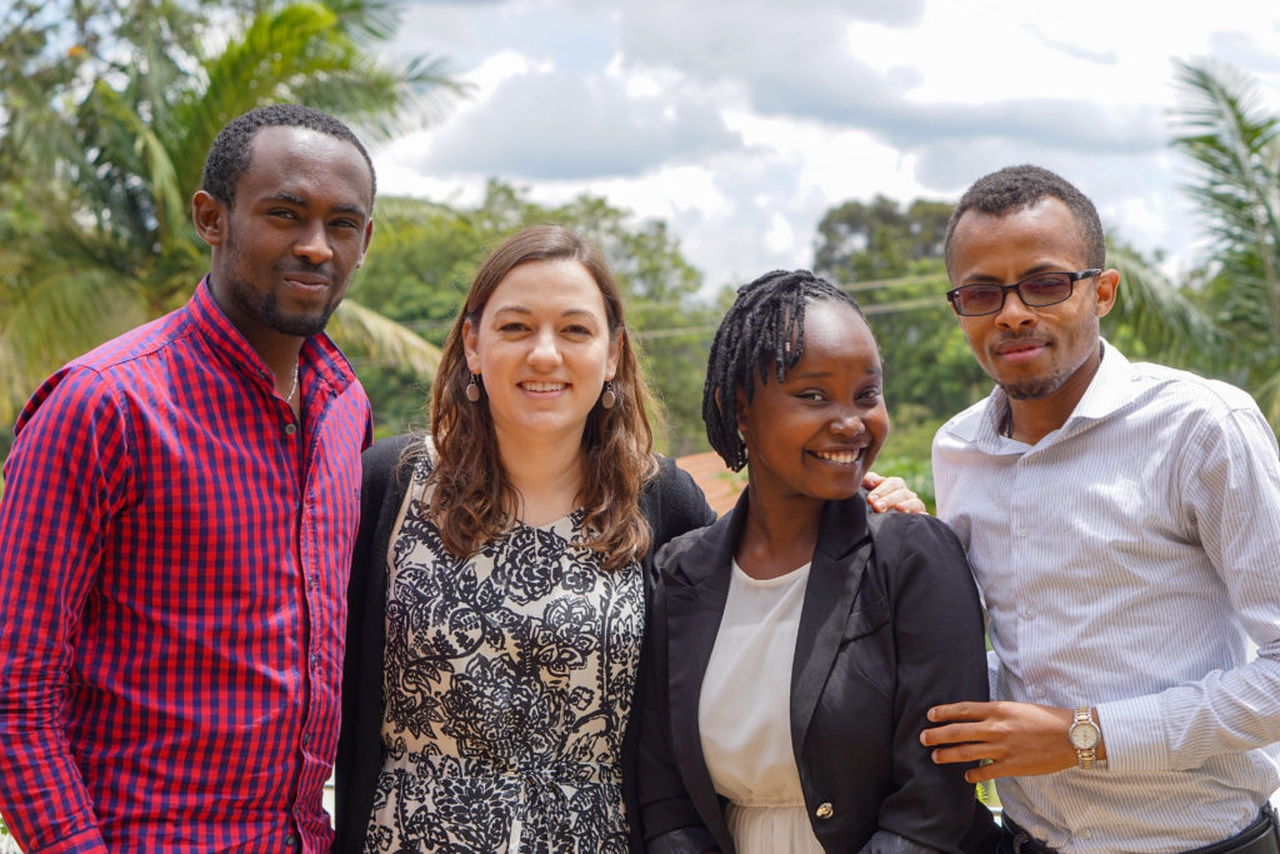
T1International in Kenya: Part 2
23 May 2016, 9:21 p.m. in Global Stories, News & Statements by Elizabeth Pfiester
T1International had the opportunity to visit Kenya, supporting an NCD Child advocacy workshop there. While in Eldoret, we visited the diabetes clinic and then headed to Nairobi to spend some time with our type 1 Global Advocate, Mbolonzi. This is part 2 of our series of blog posts summarizing experiences in Kenya.
As a member of the NCD Child Advisory Group, Elizabeth was on the faculty of the NCD Child Leadership Advocacy Training that took part in Eldoret. Working with other advisory council members, the team supported the planning and execution of the workshop. Elizabeth shares some highlights from the training below.
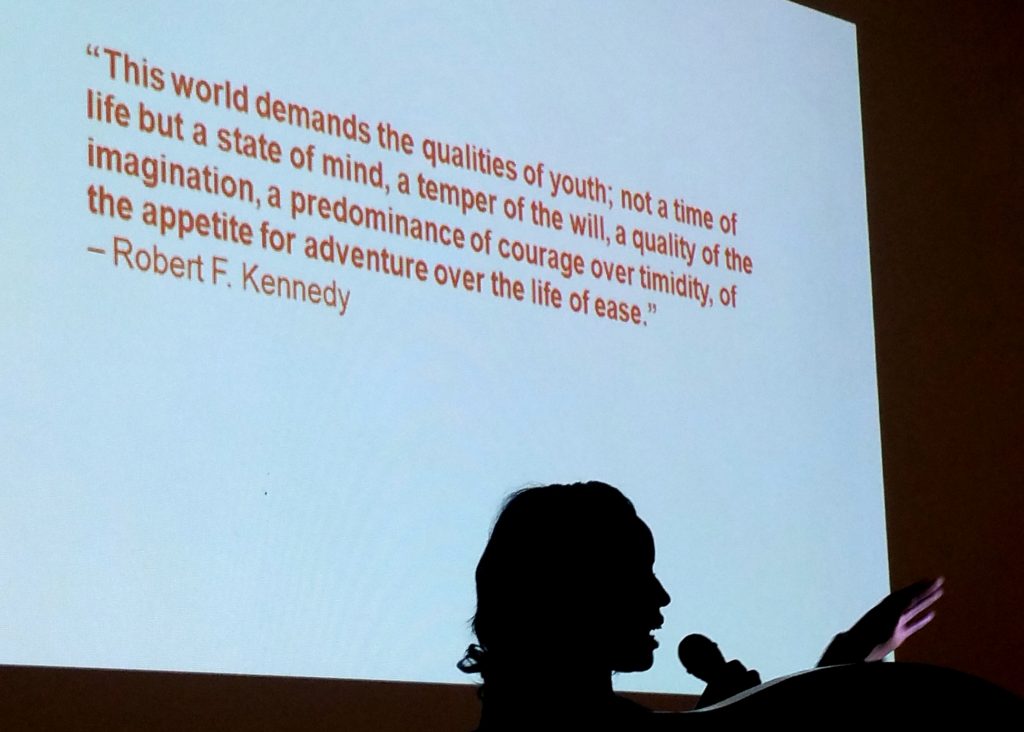 The two day advocacy training workshop brought together a mix of pediatricians, civil society organisations, and youth advocates to share experiences and create an advocacy action plan for change. We were very excited to have a significant youth representation at this event. Several of the youth representatives are affected by NCDs themselves, or work passionately in the area of NCDs. We were able to hear from many of them throughout the two days about their real-life experiences as advocates making change.
The two day advocacy training workshop brought together a mix of pediatricians, civil society organisations, and youth advocates to share experiences and create an advocacy action plan for change. We were very excited to have a significant youth representation at this event. Several of the youth representatives are affected by NCDs themselves, or work passionately in the area of NCDs. We were able to hear from many of them throughout the two days about their real-life experiences as advocates making change.
Before the participants started work on their action plans and setting their goals, we heard from a variety of speakers about topics related to NCDS, the Sustainable Development Goals, working in partnership, finding opportunities to advocate, and setting priorities.
We were also lucky to have Dr. Kibachio Joseph Mwangi, Head of Division of NCDs in Kenyan Ministry of Health with us at the event. He spoke in detail about the challenges and rewards of being an advocate, and shared some valuable insight into the perspective of someone working within the government.
In particular, there were three young people living with type 1 diabetes from Ethiopia and Kenya taking part in the training. It was great to hear about their passion to make care and treatment for people with diabetes better, and I am so glad that they had the opportunity to learn more about creating an action plan for their advocacy back home.
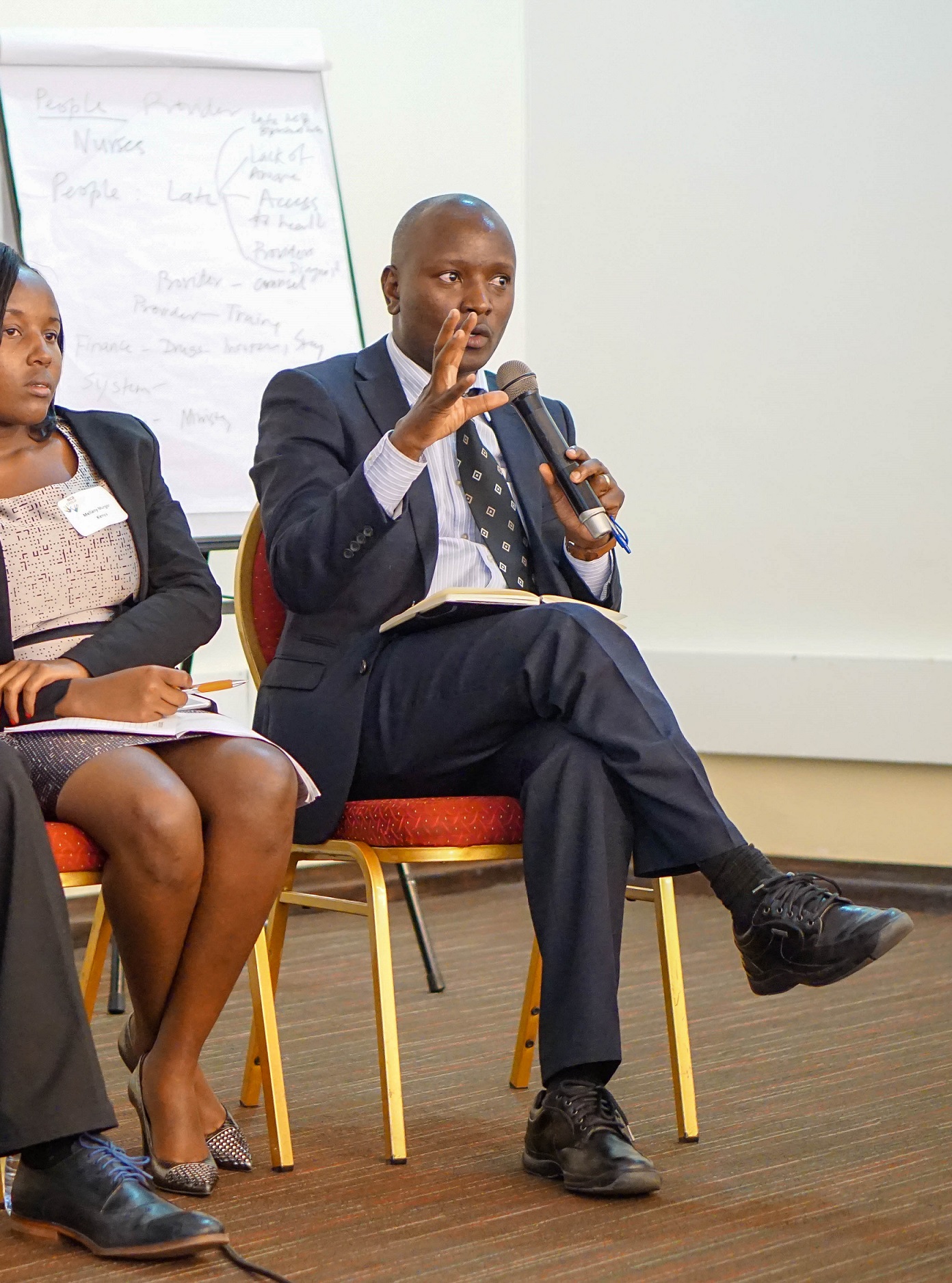 Dr. Kibachio spoke about an advocates role in influencing a politician. He explained that to get the change you want to see, you have got to make the the politician think it was their idea. He noted that you might not get the credit for any positive outcomes or progress made – that will go to the politician – but as long as change is happening, the accolades don’t matter. He put it this way: ”As the mannequin of a politician, I shrink as he shines, but at the end of the day my idea gets the recognition.” He also stressed the importance of engaging with politicians because, ”we are at the mercy of them.”
Dr. Kibachio spoke about an advocates role in influencing a politician. He explained that to get the change you want to see, you have got to make the the politician think it was their idea. He noted that you might not get the credit for any positive outcomes or progress made – that will go to the politician – but as long as change is happening, the accolades don’t matter. He put it this way: ”As the mannequin of a politician, I shrink as he shines, but at the end of the day my idea gets the recognition.” He also stressed the importance of engaging with politicians because, ”we are at the mercy of them.”
”No one is born an advocate, you have to practice.”
Dr. Kibachio also shared with us his 10 Commandments of Advocacy. These are tips for engaging policy-makers and he recommended that they must be considered and practiced in order to be a effective advocate. I think they are hugely useful for anyone wanting to change something in diabetes.
- Work on your communication skills – buy a mirror and practice speaking in front of it!
- Be knowledgeable but not condescending, passionate but not too emotional – otherwise the policymaker might get turned off.
- Time is precious and the policymaker has a very full schedule – make sure you are prepared and organised (have your elevator pitch ready so that you can be clear and engaging about what you want when you find yourself face to face with a policymaker).
- Your priority is not theirs – make sure they understand why it should be their priority.
- Know how the system works – the policymaker doesn’t want to spend time trying to teach you about these things, so do you research to make sure you understand the decision-making process and who you need to talk to.
- Come with solutions, not just problems.
- Be assertive but patient – you may be very very angry or upset, but if you don’t appear tempered this will also be a red light to the policymaker.
- Be flexible and adaptable – you might not get what you want the first time, but you have to persist and show that you are willing to bend.
- Be part of a legion – you make more impact in a bigger group that is calling for change because a policymaker won’t care too much about one person’s problem.
- Respect the neck, it turns the head – even if you don’t like the policymaker, you must get them to use your ideas in order to accomplish your goals.
Thanks to NCD Child and The Kenya Paediatric Association for making this workshop possible.




